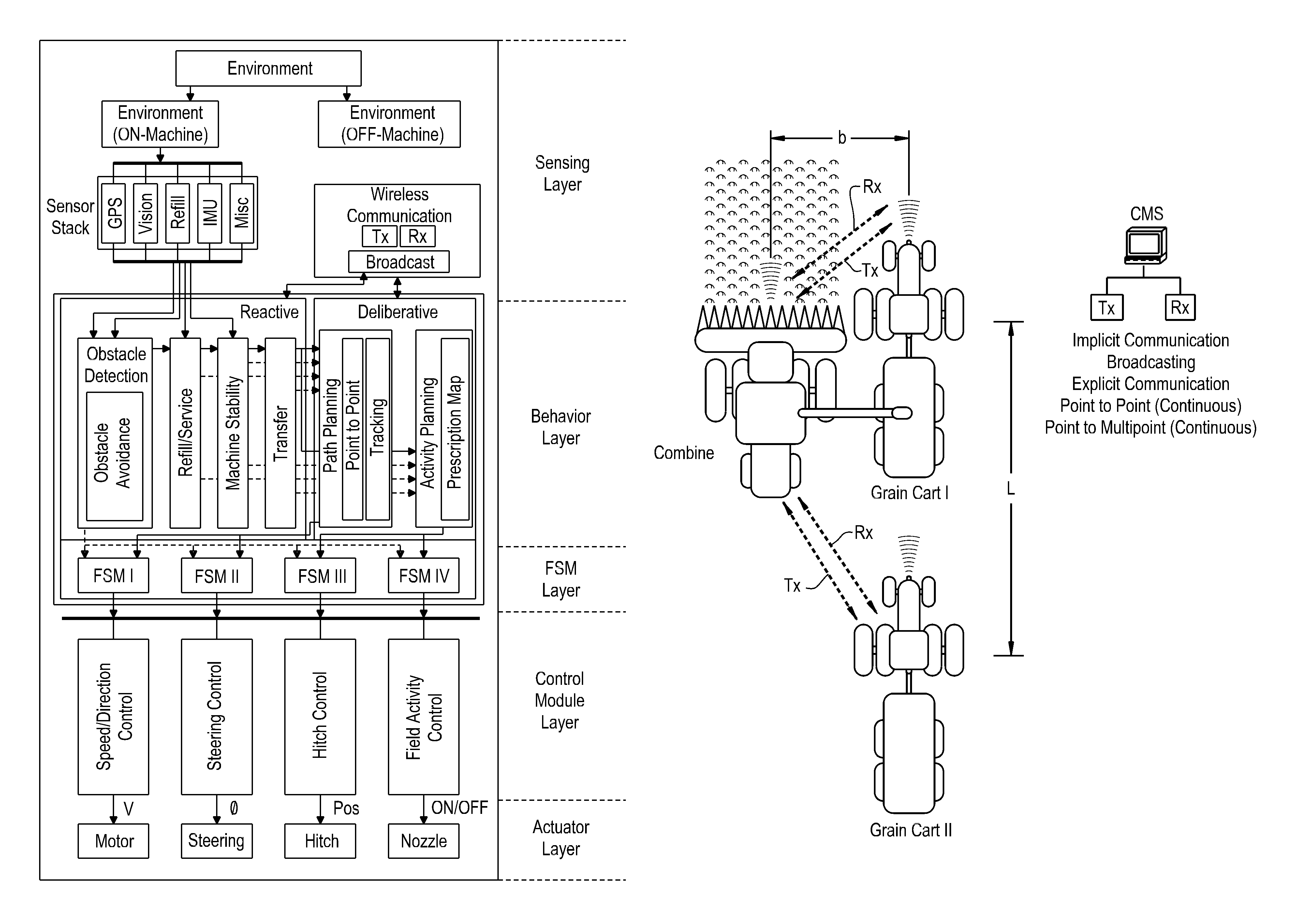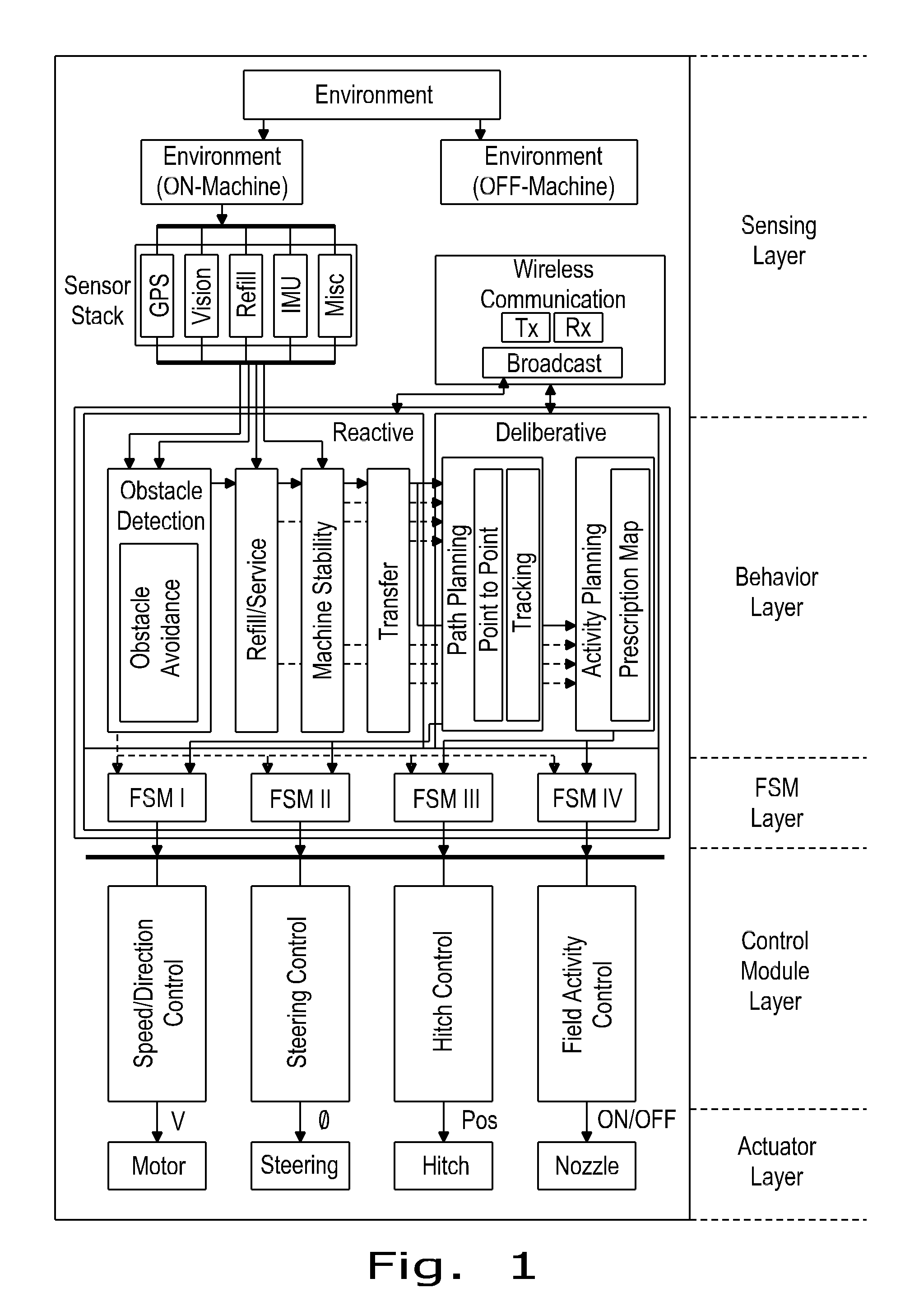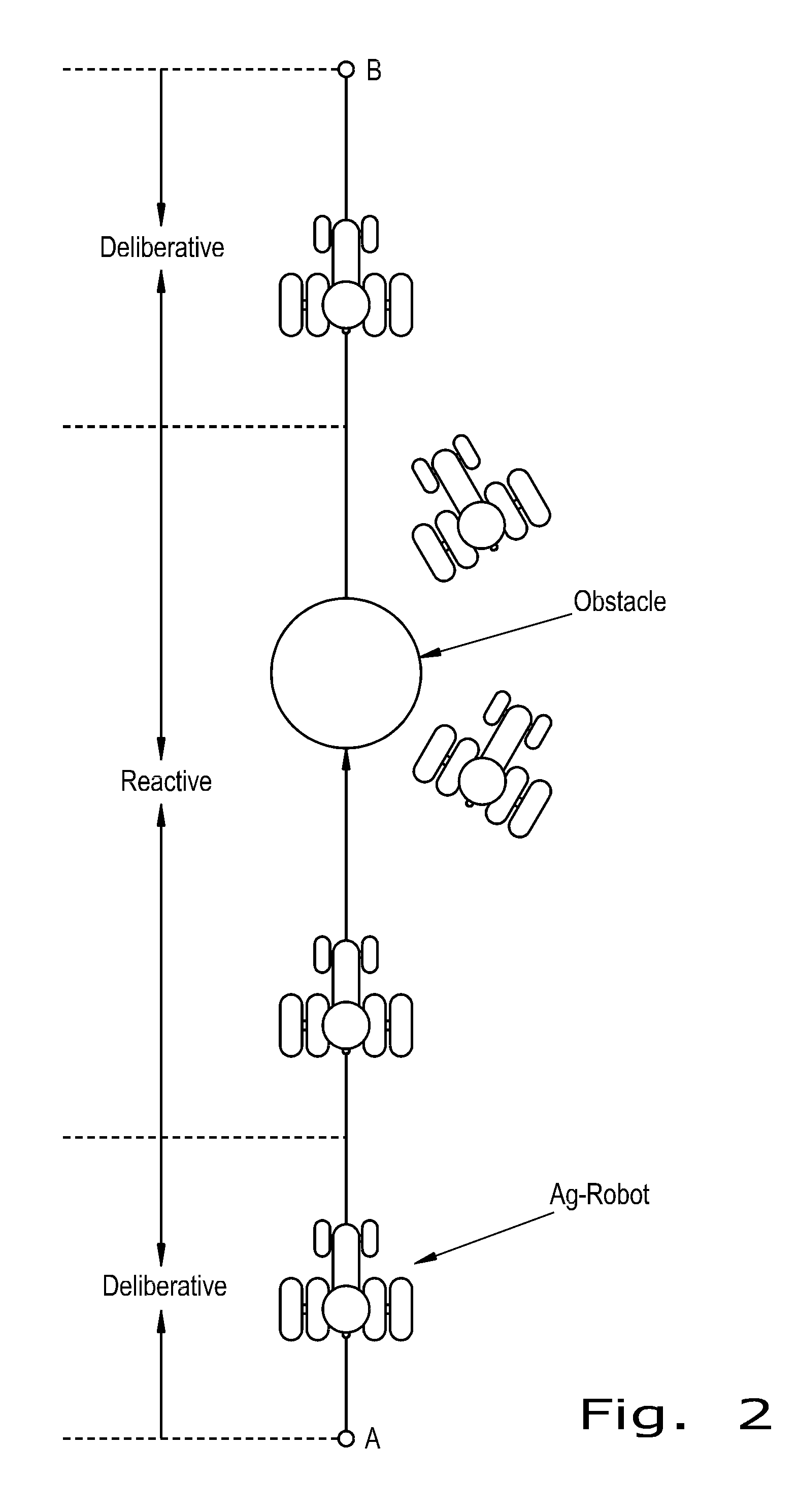Control architecture for multi-robot system
a control architecture and multi-robot technology, applied in the field of multi-robot systems, to achieve the effect of increasing the efficiency of agricultural production, safe and efficient operation, and safe and desired operation
- Summary
- Abstract
- Description
- Claims
- Application Information
AI Technical Summary
Benefits of technology
Problems solved by technology
Method used
Image
Examples
Embodiment Construction
[0068]Referring now to the drawings, and more particularly to FIG. 1, the Individual Robot Control Architecture (IRCA) consists of five functional layers; the Sensing Layer (SL), the Behavior Layer (BL), the Finite State Machine Layer (FSML), the Control Module Layer (CML) and the Actuator Layer (AL). Each layer of the IRCA (FIG. 1) can be implemented in either software or hardware constructs. A detailed explanation on each layer follows.
[0069]The SL is the topmost layer of the IRCA that processes information about the environment obtained from the onboard sensors or entities (e.g., remote computer, other robots) external to the ag-robot. The sensor stack and Wireless Communication Module (WCM) are two important components of the SL.
[0070]The sensor stack (FIG. 1) of the SL is an array of sensors that aids the ag-robot in continuous learning about the operating environment. Example sensors required for an ag-robot are included shown in the sensor stack of the IRCA (FIG. 1) and inclu...
PUM
 Login to View More
Login to View More Abstract
Description
Claims
Application Information
 Login to View More
Login to View More - R&D
- Intellectual Property
- Life Sciences
- Materials
- Tech Scout
- Unparalleled Data Quality
- Higher Quality Content
- 60% Fewer Hallucinations
Browse by: Latest US Patents, China's latest patents, Technical Efficacy Thesaurus, Application Domain, Technology Topic, Popular Technical Reports.
© 2025 PatSnap. All rights reserved.Legal|Privacy policy|Modern Slavery Act Transparency Statement|Sitemap|About US| Contact US: help@patsnap.com



